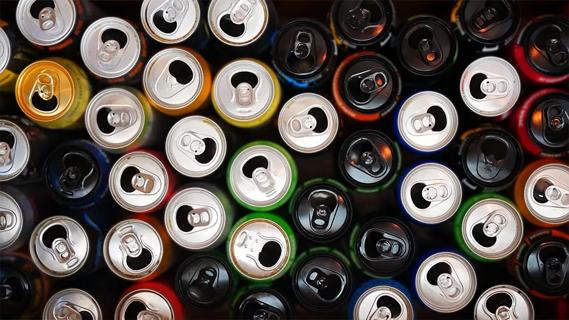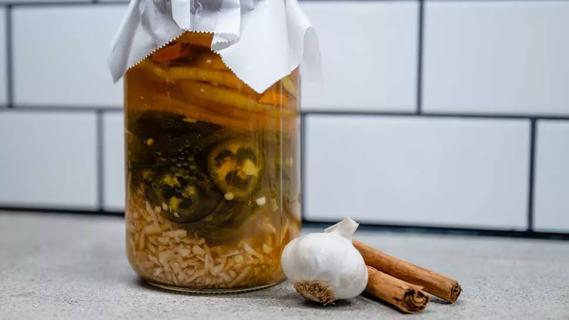Diet sodas are associated with weight gain, and may even cause insulin confusion

Maybe you finally kicked your regular soda habit. (If you did, congratulations!)
Advertisement
Cleveland Clinic is a non-profit academic medical center. Advertising on our site helps support our mission. We do not endorse non-Cleveland Clinic products or services. Policy
Maybe you’re a child of the 1990s, and diet sodas have been the only game in town all your life.
Either way, if you find yourself reaching for diet soft drinks on a regular basis, you’ve probably wondered what exactly you’re putting in your body, and how it compares to the sugary stuff.
“Switching from regular to diet soda may offer a short-term cut in calories, but your body won’t be fooled for long,” says registered dietitian Susan Campbell, RD, LD. “Research suggests that your body reacts to certain nonnutritive foods, including the artificial sweeteners in diet soda, in ways that may actually harm your health.”
Here are three reasons why Campbell says it’s important to ditch the diet drink altogether.
Some research suggests that your brain reacts to artificial sweeteners much like it does to sugary sweets. Ingesting them frequently may increase your desire for high-calorie foods, putting you at a greater risk of weight gain.
Another study found that people with overweight or obesity who switched to diet soda were likely to consume more calories in food than people with overweight or obesity who drank regular soda. In fact, those who drank diet soda had a higher BMI than their counterparts.
Advertisement
Your brain normally associates “sweet” with calories. In the realm of human physiology, that’s a good thing. It drives your body to release insulin as sugar’s chaperone to the cells to create fuel. In the past, people assumed this process couldn’t occur when we consumed artificial sweeteners because calories don’t follow the sweet flavor.
But one study found the process could very well happen anyway. In the study, individuals who consumed a specific artificial sweetener (sucralose) had increases in both insulin and blood glucose levels. Frequent rises in insulin have been linked to insulin resistance and an increased risk of Type 2 diabetes.
Some research also suggests that those who drink diet soda have higher activity in the area of the brain associated with the desire to consume foods high in fat and sugar. Drinking diet soda seems to alter your brain’s sweet-sensing reward center. This means diet soda could potentially change how your brain reacts to cravings for high–calorie foods.
With all the health concerns around diet soda, is it better to just drink the regular, sugary kind?
Not so fast. There’s tons of data out there telling us that added sugar (even when it’s “real”) is bad for our health. That doesn’t mean you can’t enjoy some bubbly goodness on special occasions, but you know what it does mean?
If your goal is better health, it’s time to kick your soda habit altogether.
And that’s no small thing. Not only are many of these drinks caffeinated, but they also alter the sweet-sensing reward center of your brain. The stuff is addictive, just like sugar.
If you’re ready to leave diet soda in your rearview mirror, here are a few things you can do to ease the transition:
Flavor, caffeine, carbonation: Diet sodas bring a lot to the table. The good news is you can find all of those things in healthier beverages, too!
Advertisement
Soft drink companies have long pitched diet sodas as a healthy alternative to their full-sugar drinks, but that’s not medically accurate. Diet sodas are just as bad — but they’re just as bad in a slightly different way. They’re associated with weight gain, insulin confusion and may even change the way your brain responds to sweets in general.
Advertisement
Quitting a habit is never easy, and soda of all types can be addictive. But experts say that kicking soda all the way out of your diet can have profound effects on both your weight and your health.
Advertisement
Learn more about our editorial process.
Advertisement

Options for sober social drinking are abundant, but be mindful about additives and triggers

Pickle juice has a reputation as a probiotic powerhouse, workout recovery aid, hangover cure and more

If you’re looking to boost your gut health, it’s better to get fiber from whole foods

While it isn’t bad for you, celery juice isn’t the detox phenom it’s claimed to be

Regularly drinking these sugar-fueled, stimulant-laden beverages can increase your risk of adverse health effects

This spicy concoction can do more harm than good, upsetting your stomach and causing painful acid reflux

Juicing removes beneficial fiber from fruits and veggies and raises your blood sugar

Sports drinks can give your body a boost, but it’s important not to overuse them

Wearing a scarf, adjusting your outdoor activities and following your asthma treatment plan can help limit breathing problems

Your diet in the weeks, days and hours ahead of your race can power you to the finish line

When someone guilt trips you, they’re using emotionally manipulative behavior to try to get you to act a certain way